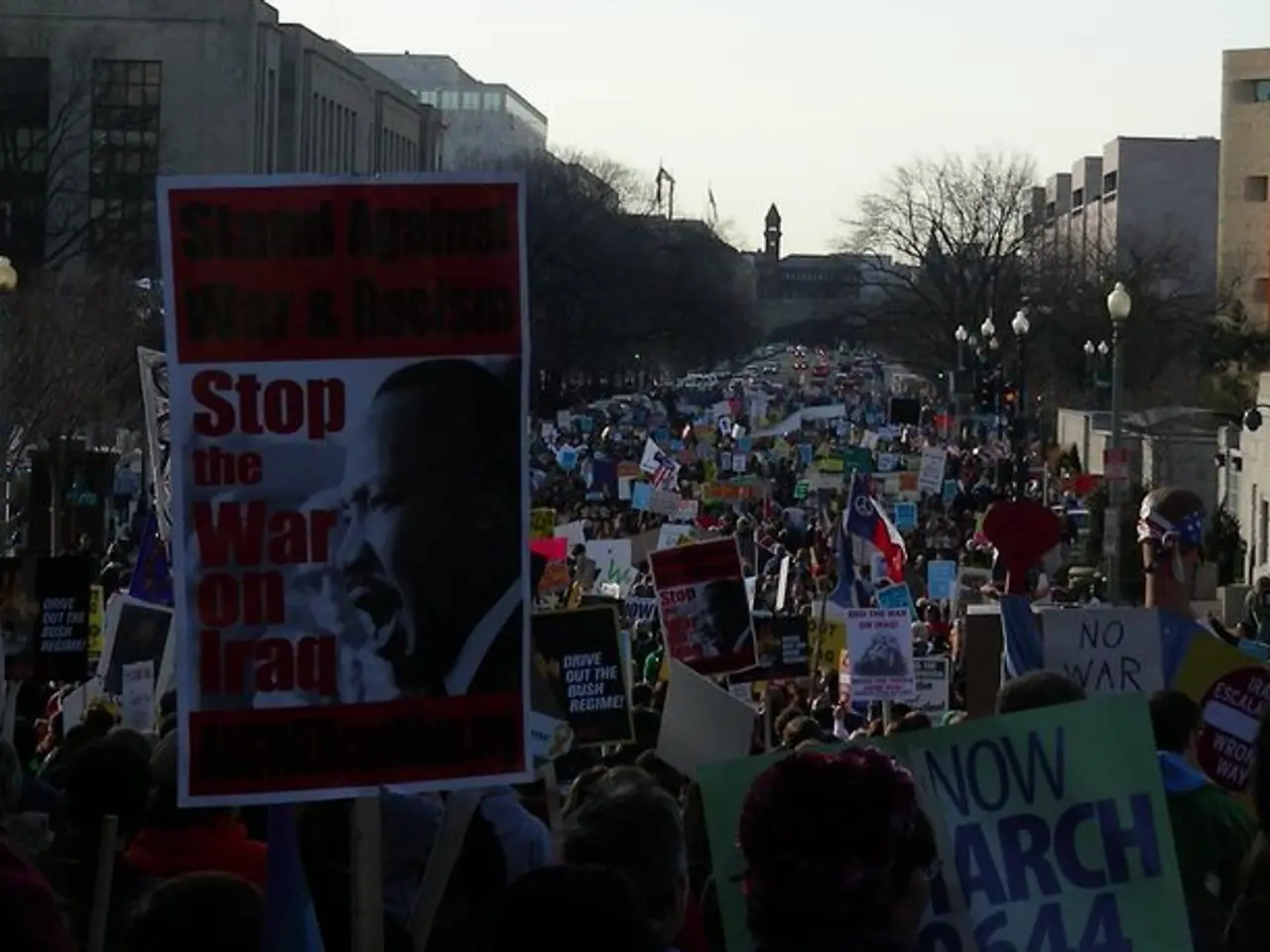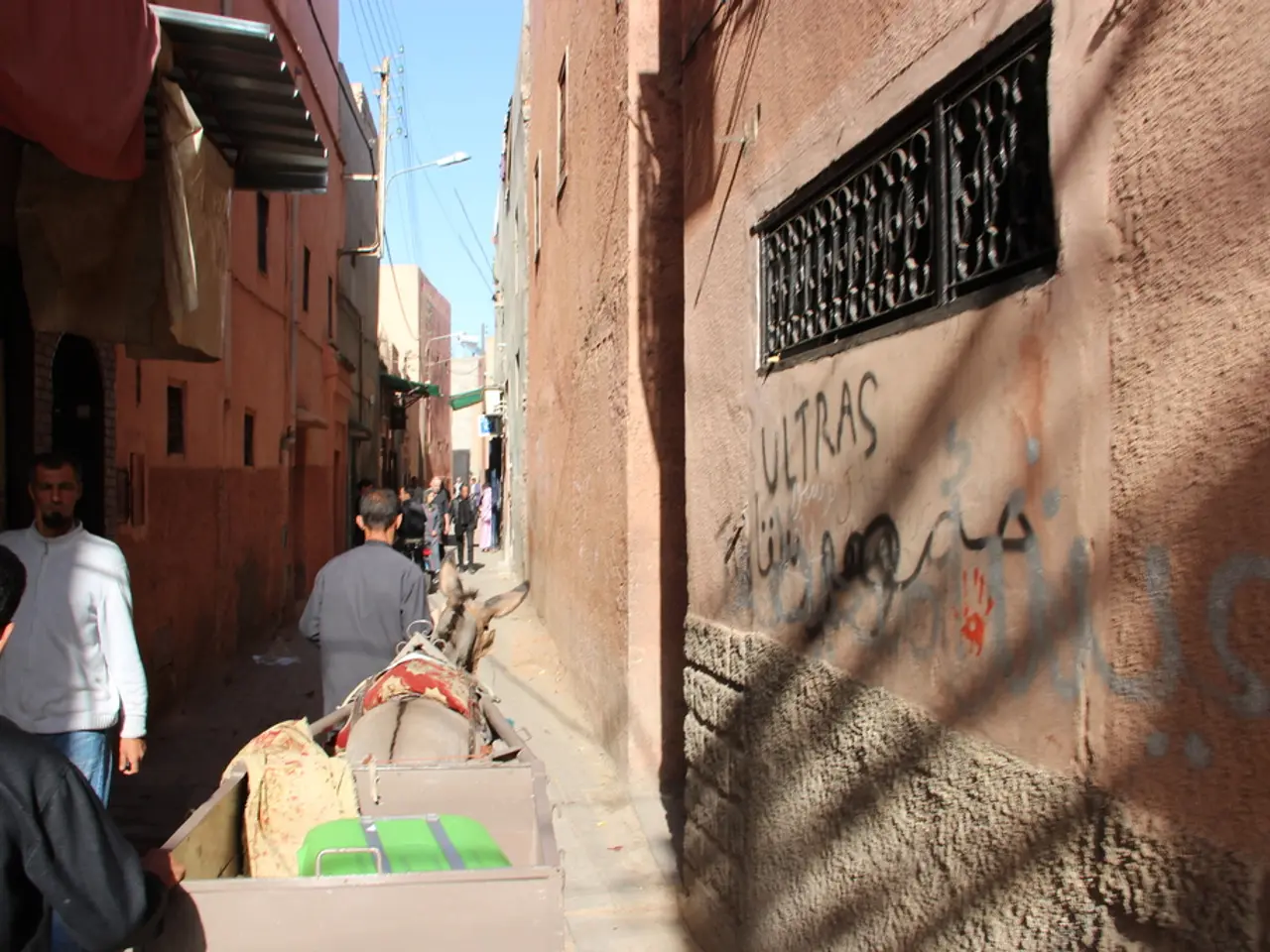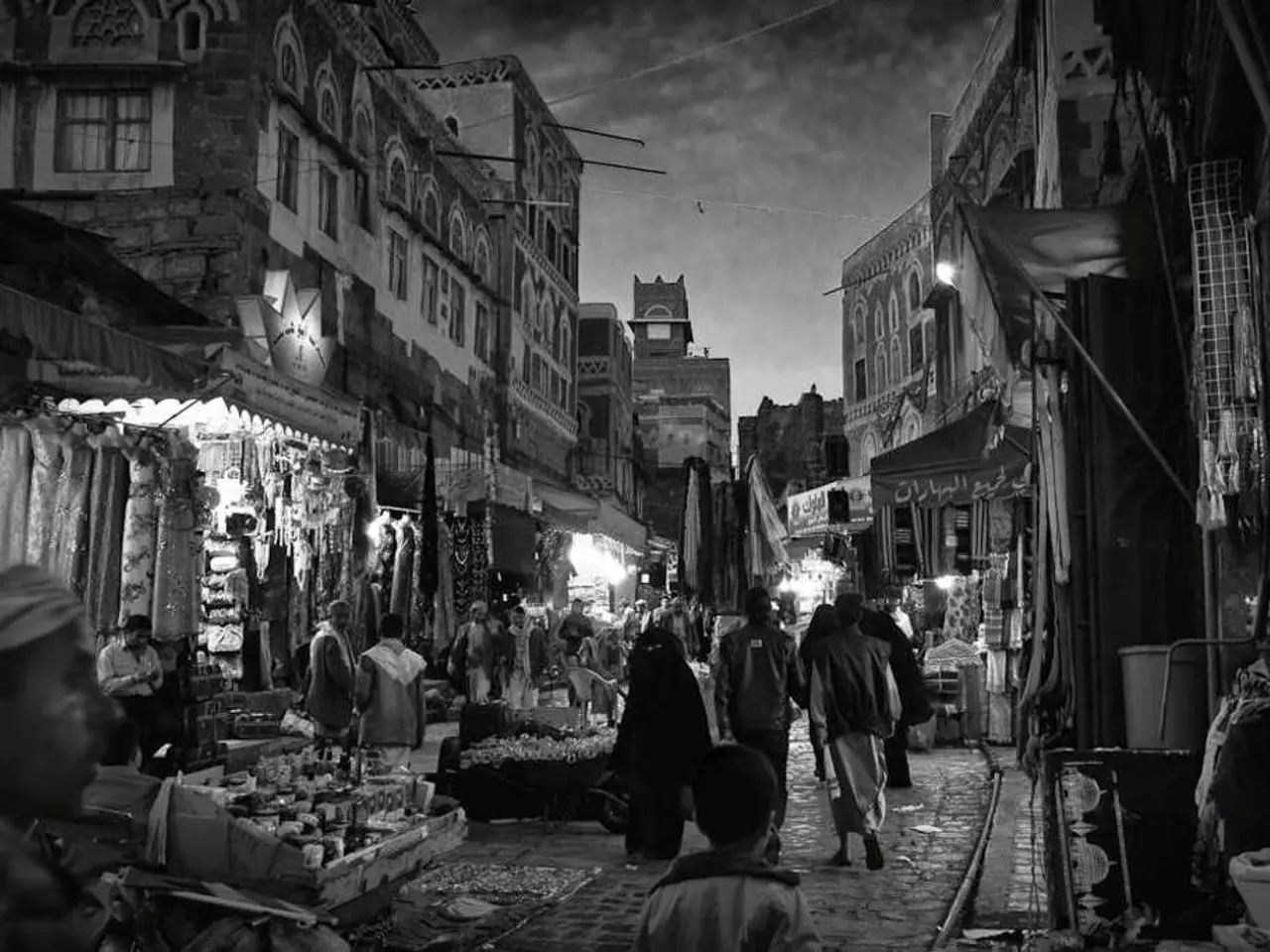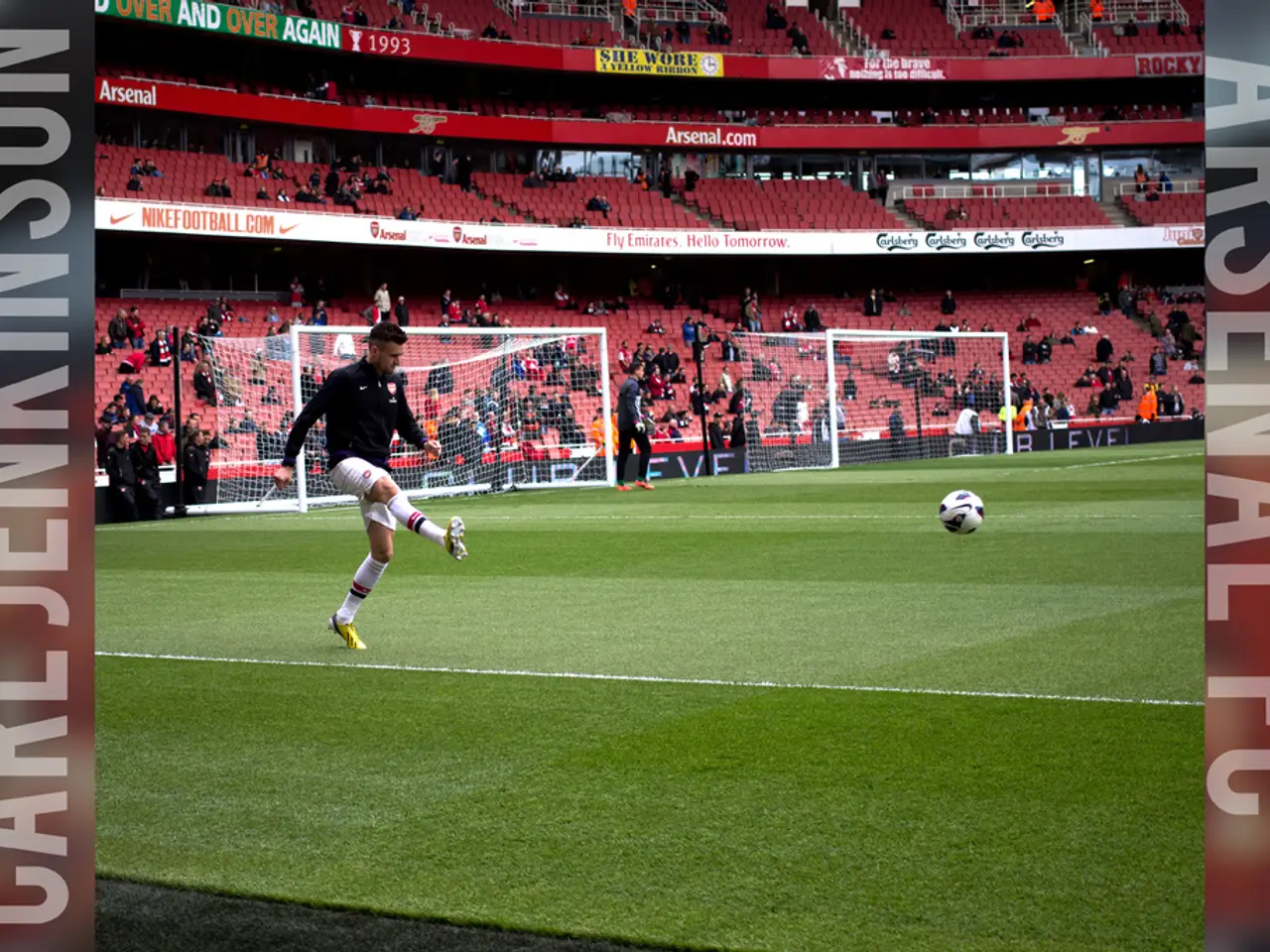Israel's proposed Gaza City military operation should be urgently terminated, according to the UN
The international community has expressed strong criticism and concerns over Israel's plan to take military control of Gaza City. The Israeli government's proposal, part of a broader offensive to disarm Hamas and establish Israeli security control, has been met with condemnation from various international bodies and human rights organisations.
The International Commission of Jurists (ICJ) has warned that the occupation plan could lead to massive civilian displacement and devastation, potentially resulting in further war crimes and crimes against humanity. They have called for an immediate halt to the plan and urged for a lasting ceasefire and the release of hostages.
Similarly, the United Nations High Commissioner for Human Rights, Volker Türk, has condemned the occupation plan as contrary to international law. He has referred to the International Court of Justice ruling that Israel must end its occupation and respect Palestinian self-determination. The UN has warned that the plan would lead to more forced displacement, killings, destruction, and atrocity crimes.
The consequences anticipated from Israel's plan include the forcible transfer and displacement of about one million Palestinians in Gaza City and its surroundings, extensive destruction and civilian casualties due to ground offensive, escalation of the conflict leading to greater regional instability and humanitarian crisis, and potential long-term occupation challenges.
No major international actor has supported Israel's occupation plan, and it appears to face significant diplomatic isolation and pressure, especially from human rights institutions and the United Nations. Germany, the second-biggest exporter of military equipment to Israel, has announced it will suspend the exports of arms to Israel that could be used in the Gaza Strip "until further notice."
Israeli Prime Minister Benjamin Netanyahu, in a Fox News interview, stated that he does not want to "govern Gaza," but he wants to "hand it over to Arab forces that will govern it properly without threatening" Israel. Hamas, on the other hand, has called Israel's latest plan a new war crime.
Family members of hostages and other protesters have gathered to protest Netanyahu's current proposal, expressing their concerns about the potential harm it could cause. Anat Angrest, mother of hostage Matan Angrest, stated that for over a year and ten months they've been trying to believe that everything is being done to bring the hostages back, but the government has failed.
The Israeli Defense Forces (IDF) will prepare for the takeover of Gaza City while ensuring the provision of humanitarian aid to the civilian population outside the combat zones. However, the potential escalation is expected to lead to more problems in the region, including senseless destruction and atrocity crimes, as warned by Volker Türk, the United Nations High Commissioner for Human Rights.
The U.S. State Department has expressed a focus on freeing the hostages, including the remains of two Americans, and ensuring that Hamas never rules Gaza again. However, they have not commented on the possible expansion of the campaign in Gaza. Hamas, in response, has claimed that Israel's plans to take over Gaza City was the reason for Israel's withdrawal from the last round of negotiations, and that they had been "on the verge of reaching an agreement for a ceasefire and prisoner exchange."
In conclusion, the international response to Israel's plan to occupy Gaza City has been overwhelmingly critical, emphasising the severe humanitarian and legal consequences of such an operation. The key international responses include strong condemnation by international legal and human rights organisations, calls for an immediate halt to the military occupation plan, appeals for humanitarian aid access for Gaza civilians, and warnings about the plan's contravention of international law and prior court rulings.
- The International Commission of Jurists (ICJ) has urged for a lasting ceasefire and the release of hostages, warning that Israel's occupation plan could lead to further war crimes and crimes against humanity.
- The United Nations High Commissioner for Human Rights, Volker Türk, has condemned Israel's occupation plan as contrary to international law, referring to the International Court of Justice ruling that Israel must end its occupation and respect Palestinian self-determination.
- No major international actor has supported Israel's occupation plan, and it appears to face significant diplomatic isolation and pressure, especially from human rights institutions and the United Nations.
- Family members of hostages and other protesters have gathered to express their concerns about the potential harm that Israel's current proposal could cause.
- The U.S. State Department has expressed a focus on freeing the hostages and ensuring that Hamas never rules Gaza again, but has not commented on the possible expansion of the campaign in Gaza.







